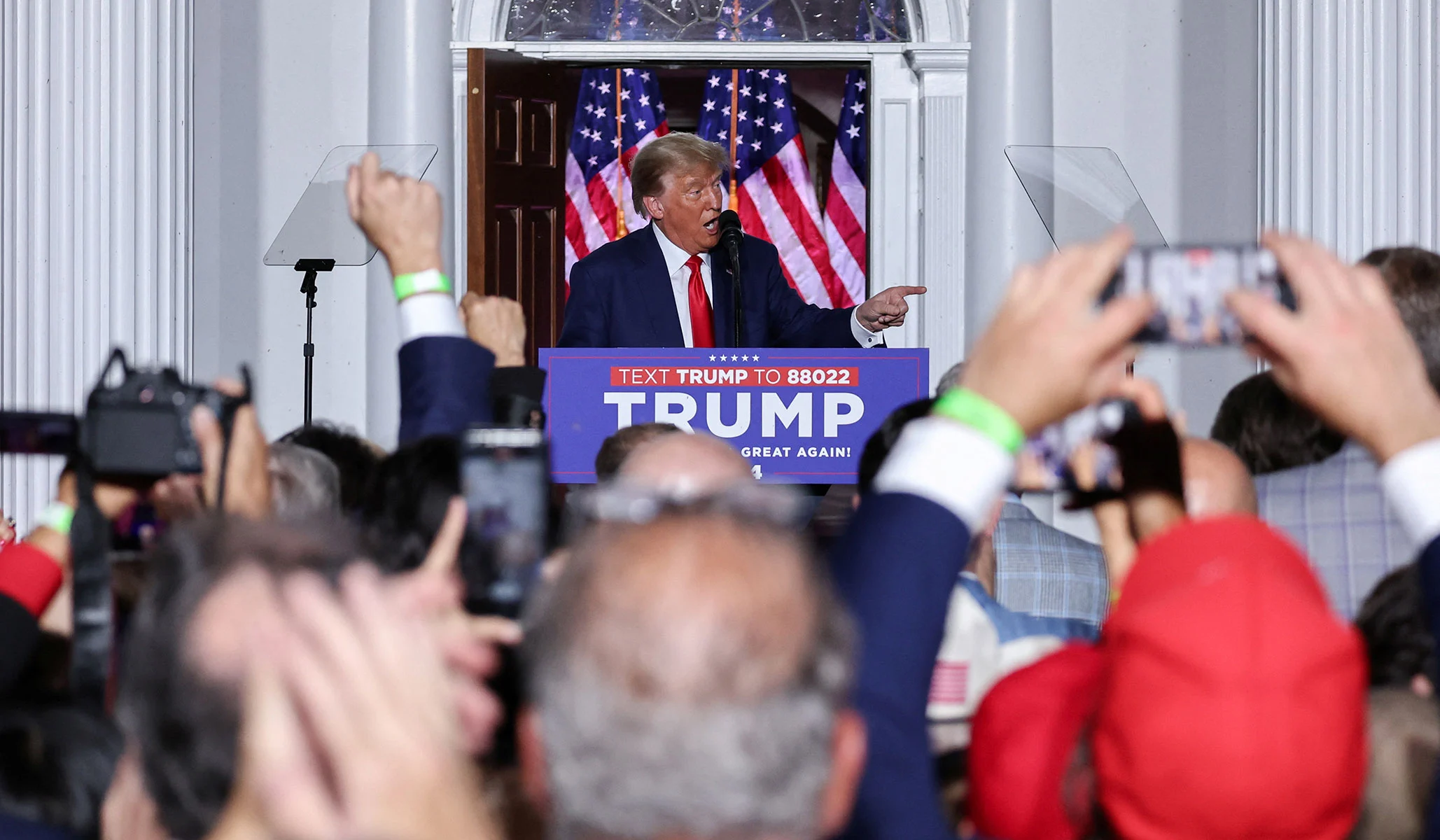The spirit of democracy is challenging the very idea of a government of laws, not of men, and undermining our republican form of government. This force has led to warnings that we don’t want to become a banana republic, where the winning party tries to imprison figures of the opposition. Radio host Mark Levin’s response to the indictment of Donald Trump last week is a clear example of the hole this force opens in our body politic. He responded with a full-throated roar, “There is no law! What’s going on here is a disgusting disgrace. It is war on Trump. It is war on the Republican Party.”
This bone-deep belief in the spirit of democracy is behind the crazy talk of lawlessness and Vivek Ramaswamy’s sweaty promise to pardon Trump. It has also led us to the current impasse in our politics. Other republics don’t fear the prosecution of their former heads of state. In France, for example, nobody thinks that the prosecution of former prime minister Nicolas Sarkozy is ultimately a political hit job aimed at delegitimizing all members of his party, Les Républicains. Jacques Chirac, his predecessor, was also convicted of corruption.
But in America, we fear it. The spirit of democracy is partly why James Comey let Hillary Clinton off so easy. It’s why, at every turn, he gave Clinton and the Clinton campaign the widest latitude, even though, at the time, even Peter Strzok was arguing for bringing down the hammer. This spirit of democracy explains why 80 percent of Republicans, in one recent poll, said that President Trump should still be able to get back into the Oval Office, even if he’s convicted in the documents case.
My theory is that once a person credibly submits him- or herself to the judgment of the American people for the highest office in the land, the American people, consciously or not, deem themselves the only qualified body in the land to judge that person henceforward. It’s not rational or by the book, but at the bottom of every real operative constitution, there is something dark, inscrutable, and mysterious. In America’s unwritten constitution, the average voter’s aspirations, his politics, and his legitimacy as a citizen are somehow bound up in his choice for president. And therefore, legal attacks on the president are treated as if they were legal attacks upon the legitimacy of his supporters.
This helps explain why Gerald Ford was so anxious to pardon Richard Nixon. It explains why Democratic partisans felt in some way that Bill Clinton’s soaring post-impeachment approval ratings were the real final word on whether he perjured himself, obstructed justice, or did anything all that wrong at all. It explains why Andrew Jackson got away with violating every rule of propriety in the Washington, D.C., of his time. Ultimately, he had the people behind him. And so there were limits on what his political enemies could ever do to him.
Merrick Garland’s office initially tried to give Trump the same kind of treatment that Hillary Clinton got, but Donald Trump understood America’s real constitution better than anyone else. He intuited that “if you’re a celebrity, they let you get away with it.” It’s precisely by trying to make the mysterious and magical into the logical and legal that we destroy it. Nobody actually tries to nail down the chain of custody of the Stone of Scone. And so the flagrancy with which Trump violated the Espionage Act and abused the Presidential Records Act was far more provocative, and it finally brought our written laws and unwritten customs for presidents into open conflict.
The rally effect that Trump experiences when he is prosecuted is the response of voters protecting their own prerogative as the great sovereign from the lesser powers that pretend to delimit their choices. It’s not saying it makes sense, but it’s just the way we are.

